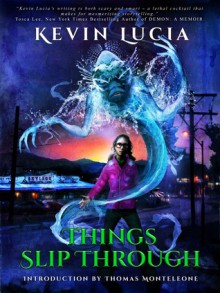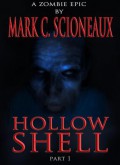
A work of historical fiction, The Whispering of the Willows is set in the late 1920s in the Appalachian Mountains of West Virginia. Eighth grader Emerald is about to learn some hard lessons when a deeply disturbed man is thrust into her life by her abusive father and enabling mother. Author Tonya Jewel Blessing tells a story about a young woman's struggles and redemption. The blossoming young woman is accompanied by her friends and her foes on the journey towards hope and healing. Love weaves through gut-wrenching circumstances and dismal poverty. There, Emerald Ashby grows strong despite grievous wrongs committed against her.
~from back cover
Emerald "Emie" Ashby is a young girl from a dirt poor family, just starting her teen years, coming of age in the small Appalachian town of Big Creek, West Virginia during the 1920s. With her 8th grade year of schooling coming to a close, Emie's father decides "she ain't a boy that can carry his weight", so he decides to arrange to have her married off to a local boy... a decision he makes without so much as a word to Emie herself.
It's the choice of the groom that gets everyone's hackles up. Young Charlie, still working through his teens himself, has already gotten himself a reputation for being short-tempered, mean-spirited, possibly even abusive towards women. Just like his father. Emie's mother, Alma, though used to acquiescing to her husband's wishes, fears that if this marriage goes through, her daughter will be unfairly condemned to a life of endless work and abuse from both husband and father-in-law, leaving her with little more than an utterly broken spirit. When Emie's father, Ahab, continues to insist that the match is a good one, Emie's older brother, Ernest, begins to have suspicions of ulterior motives. Sure enough, some digging on Ernest's part turns up the truth: Emie's marriage to this boy is so important to Ahab because of its ties to a business deal he needs to see succeed. Unfortunately, Ernest's involvement in the family drama leads him to find young Emie one night, propped against the support rail of a bridge, still alive but with her body battered & broken following a sexual assault.
From there the story becomes one of Emie's physical and emotional healing, working through the emotions that come with having one's childhood unexpectedly truncated, and the need to make sure such horror doesn't befall her younger sisters. Emie gets a fresh start under the protective wing of "Auntie Ada", not a biological aunt but one Emie calls a "love aunt", a longtime friend of Alma. It's in Ada's home that Emie experiences the kind of environment every young person should be privy to: one of love, kindness, tolerance and compassion for all.
"Even in darkness, there was always a measure of light."
This is illustrated firsthand when Ada hears of a black man, ironically named Justice, who is falsely accused and arrested for Emie's assault. Everyone in town knows who's likely responsible, but because of the person's position in town, it's hushed up and a fall guy is produced. Well, Ada won't stand for it. Once Justice's release is arranged, she not only takes in him but his entire family to keep them safe from those who'd wish him harm. Not only does Ada offer the family food, shelter and friendship, but she also works her magic to arrange for educational opportunities for Justice's young children.
"Around my table, we are all equal like the good Lord intended." ~ Ada
It's through the nurturing environment of Ada's homestead that Emie learns the true meaning of respect, love, and healthy family bonds. Through witnessing Ada tackling social injustices head on, Emie is provided a firm example of what it means to stand by one's word and protect the innocent.
"God listens to all prayers, darlin', even the ones too painful to be sayin' out loud." ~Ada to Emie
I couldn't quite put my finger on what was creating the sensation, but there was something to the writing here that made this novel feel much more dense and complex than one might expect for being less than 400 pages. The plot somehow manages to simultaneously be complex yet easily imaginable, scary as that sounds. The characterization of Emie's father alone made much of the text hard to stomach, imagining a father that would repeatedly put his daughter in the path of danger with little more than a shoulder shrug and a hope for solid monetary gain for his decisions. And then there's Alma. The yin and yang of dysfunctional relationships -- if there's an abusive husband, there naturally has to be the doormat wife to say "he has his reasons for being difficult." In this case, Alma reasons away her husband's abuse by saying he wasn't the same man she married when he came back from World War 1, but the horrors he saw make him lash out....it's not really him doing it... etc. Just picturing this couple -- the father easily condoning the sexual assault of a minor so he can make a few extra bucks here and there, and his wife dismissing herself out of responsibility with a curt "mind your father" ... it made for a maddening reading experience! But it's a testament to author Tonya Jewel Blessing's writing that she can make a reader feel SO strongly towards her characters!
"He only has the power you give him."
~ Ernest to his abused mother
One way Blessing lightens the heaviness of some of the darker bits of the plot is by incorporating nods to Appalachian folklore as well as a sweet love story for Emie that quietly, gently unfolds under the whispering of willow trees by the river, teaching her to trust again and believe that a good man won't mind waiting for a great gal (and that these men do exist, if one only has faith!) The folklore that heads every chapter was entertaining, a number of them being not too far off from what many of us would deem "old wives' tales". Some of them are oddly specific, such as to keep evil away, find the left hind foot of a graveyard rabbit.. or flower that bloom out of season are evil. I got a kick out of some of the things that create bad luck, according to these Appalachian beliefs: bathing on your wedding day, watching a person leave until they are out of sight, dreaming of muddy water... just to name a few.
While the subject matter can be tough to stomach at times, Blessing's writing here has a true down-home way about it. Her way of describing the emotions and environments of these characters has a certain flow, a kind of lyricism to it that offers the reader a true sense of mountain life of the 1920s. There were times during the first half of the novel where portions of the writing came off a little too direct for this girl's liking, leaving little room for mystery or opportunities for the reader to have some fun with guessing / inference. However, the suspenseful plot twists (particularly the major tragedy explored in the final chapters) Blessing stashes away on the back end of the story more than made up for this! It's also admirable that Blessing uses a couple of her characters to address the struggle & hardships of interracial relationships within a largely racist community. It's sad to say that though this novel is set in the 1920s, what the reader sees this couple go through won't seem too unfathomable in today's world.
* FYI: or those interested in this book as a possible book club pick, a list of discussion questions is included at the back of the book.
FTC Disclaimer: Bookcrash.com & Capture Books kindly provided me with a complimentary copy of this book in exchange for an honest review. The opinions above are entirely my own.
________
EXTRAS:
* This novel is inspired by the stories of author Tonya Blessing's own mother, who grew up in the real Big Creek, WV -- an area used for the setting of the film October Sky.
* Author Tonya Jewel Blessing and her husband are co-directors of Strong Cross Ministries, a non-profit dedicating to offering assistance to churches in impoverished communities around the world carry out humanitarian projects meant to better provide for struggling communities. ALL proceeds of this novel will be funded back into Strong Cross Ministries of South Africa.




 Log in with Facebook
Log in with Facebook 





























